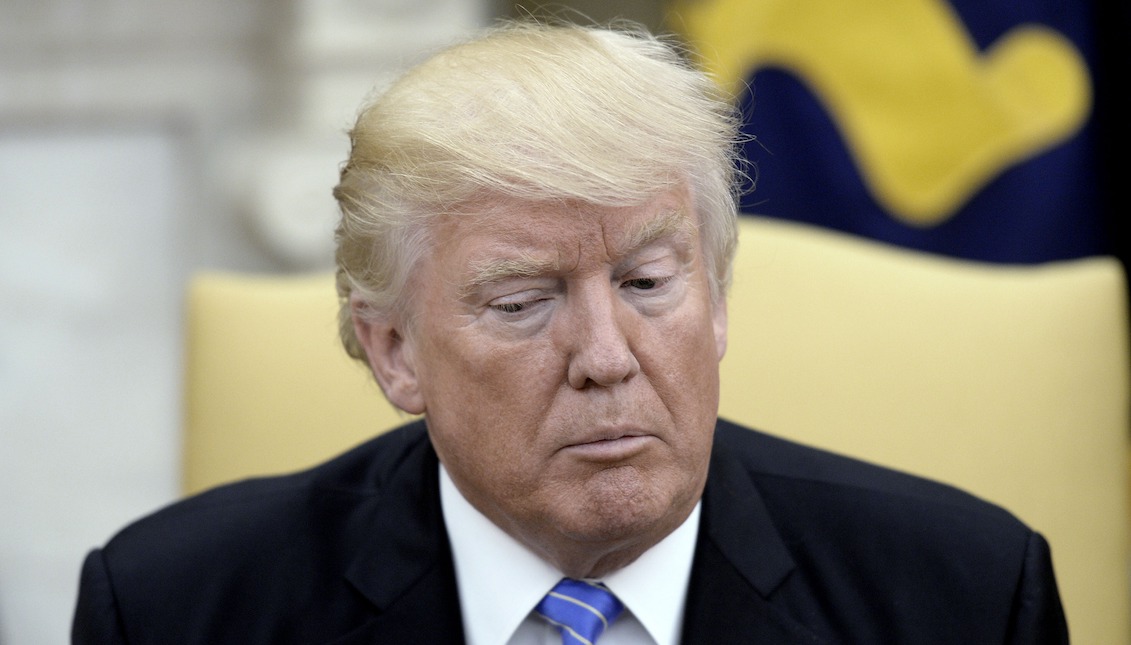
Three serious findings inside the whistleblower’s complaint
The document delivered to Congress after an internal complaint in the Intelligence Department shows much more than a simple call with Ukraine.
Prior to the release of the whistleblower report, the information that had been revealed about an internal whistleblower of the Intelligence Department and the phone call between President Donald Trump and Ukrainian President Volodymyr Zelensky was enough for the Democratic leadership to have called for an impeachment inquiry.
But the publication of the transcript of the call by the White House and the delivery of the official complaint document have opened new fronts of speculation about the questionable behavior of the U.S. president when it comes to foreign affairs.
The anonymous whistleblower claims in the document to be "deeply concerned" about a "serious or flagrant problem, abuse or violation of the law or executive order" by Donald Trump when using his power in office to "request interference from a foreign country in the 2020 U.S. elections."
These are the three most important aspects that we uncovered from the nine-page document:
Coinciding largely with the transcript made public by the White House, President Trump used the phone call "to advance his personal interests,” specifically around Ukraine's potential aid in his 2020 presidential campaign.
The complainant lists three specific favors: reopening the investigation around the activities of former Vice President Joe Biden and his son in the country; helping to establish a context that belies Russian interference in the 2016 elections; and forming a communication channel between the personal lawyer of the president, Rudy Giuliani, and Attorney General William Barr with the team of President Zelensky.
Since the chairman of the House Intelligence Committee Adam Schiff made public the existence of the complaint, President Donald Trump has defended himself by doubling down on the assertion that his communication with Ukraine was focused "largely on corruption."
By joining the pieces and understanding that perhaps this thread of favors was the reason why the Administration had frozen a package of aid to Ukraine previously approved by Congress, the call between the two presidents began to look like a smoking gun.
As the anonymous complainant explains, the only “corruption case” discussed between the two presidents was the one that allegedly involves the former vice president.
RELATED CONTENT
“The White House officials told me that no other cases were discussed,” says the document.
Despite having been heard in the White House Situation Room with several people present, President Trump did not hesitate to divert the call towards “the favor” that Ukraine would have pending with the United States - that is, with him - and which was interpreted by officials as evidence of the President "abusing power for personal gain."
Even when President Trump believed he was not doing anything out of the ordinary, his words triggered an effort on both sides of the Atlantic to try to contain the damage.
On the one hand, the White House diverted the transcription of the call to a server destined for sensitive information for national security, and the complainant alleged that the officials were instructed to "lock down" the information.
"White House officials told me that they were ‘directed’ by White House lawyers to remove the electronic transcript from the computer system in which such transcripts are typically stored for coordination, finalization, and distribution to Cabinet-level officials,” reads the document.
On the other hand, the complaint mentions officials Kurt Volker, special representative for negotiations in Ukraine, and Gordon Sondland, U.S. ambassador to the European Union, as the two people who immediately jumped in to try to "navigate" the strange requests that Trump had made of Zelensky.
Both officials tried to coordinate with the president's personal lawyer, Rudy Giuliani, "in an attempt to contain the damage."
Finally, the document, delivered to the appropriate authorities long before the publication of the transcript of the call, coincides perfectly with what the White House published in this regard, leaving the Special Committees of the House with the arduous task of confirming each of the sources of information that the complainant mentions as witnesses of what seems like it could be the end of Donald Trump’s presidency.











LEAVE A COMMENT: